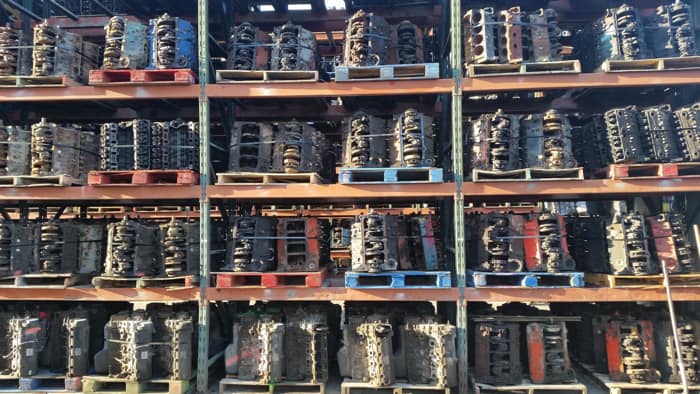
Fraser Engines is a superior option over other online engine brokers for a number of reasons. Firstly, Fraser Engines is a manufacturer of engines and engine components, whereas many online powertrain stores are simply brokers who sell engines from a variety of different sources. This means that Fraser Engines has complete control over the quality of the engines they produce, and they can ensure that each engine meets their rigorous standards for performance and reliability. Not only that, but we can normally get harder to get units a lot faster than other online engine brokers!
Another advantage of buying from Fraser Engines is that we offer a wide range of engines and engine components, including remanufactured engines, custom-built engines, and performance engines. This means that no matter what your needs are, Fraser Engines is likely to have an engine that fits your vehicle and your budget.
Fraser Engines also offers exceptional customer service, with a team of knowledgeable representatives who can help you choose the right engine for your vehicle and answer any questions you might have about the engine or the installation process. Fraser Engines also offers a wide array of warranties on our engines, so you can have peace of mind knowing that your investment is protected.
Finally, buying from Fraser Engines means supporting a family-owned and operated business that has been in operation for over 60 years. Fraser Engines is committed to providing high-quality, American-made engines and engine components, and we take pride in the work that we do.



What is waiving a core?
The practice of waiving engine and transmission cores has become prevalent in the automotive industry, particularly among engine brokers. While it may seem like an enticing offer for customers, the act of waiving cores can have severe financial implications for companies. Fraser Engines, a reputable company with a six-generation history, has witnessed first hand how this practice can lead to the downfall of businesses. This article aims to explore the reasons behind waiving cores, the impact it has on a company’s financial health, and why Fraser Engines advises against this practice.
Reasons for Waiving Cores:
The primary motivation behind waiving engine and transmission cores is to attract customers by providing an upfront cost reduction. Engine brokers often use this strategy as a marketing hook, making it appear as if customers are getting a better deal. By waiving the core charge, customers perceive it as a cost-saving advantage and are more likely to choose that option over competitors.
The Financial Burden:
However, waiving cores can lead to severe financial strain for companies. Cores are an essential part of the remanufacturing process as they serve as the base for rebuilding engines and transmissions. When customers fail to return the cores, companies lose a valuable component required for their operations. This loss of cores translates into increased costs for companies, as they must source replacement cores to maintain their inventory.
The Impact on Company Budgets:
By waiving cores, companies find themselves facing a challenging financial situation. The cost of acquiring replacement cores adds up over time, straining the company’s budget and affecting profitability. Additionally, the lack of returned cores disrupts the remanufacturing process, causing delays and impacting productivity. Ultimately, these financial burdens can lead to a company’s bankruptcy, as observed by Fraser Engines in the cases of four businesses that succumbed to this practice.
Fraser Engines’ Perspective:
Drawing from their extensive experience in the industry, Fraser Engines firmly advises against waiving cores. They stress the importance of paying the core charge to ensure the financial stability and sustainability of the business. By collecting core charges, companies can maintain a steady supply of cores for remanufacturing, reduce costs, and avoid the pitfalls associated with this practice. Fraser Engines recognizes the long-term benefits of prioritizing core returns and emphasizes that it is a responsible and necessary business practice.
Conclusion:
Waiving engine and transmission cores might appear advantageous to customers in the short term, but it poses significant risks to companies. Fraser Engines, with its six-generation history, has observed the detrimental effects of this practice on businesses within the industry. By waiving cores, companies face financial strain, increased costs, and potential bankruptcy. Fraser Engines advises against waiving cores, emphasizing the importance of paying core charges to maintain financial stability and ensure a sustainable future for companies in the automotive industry.